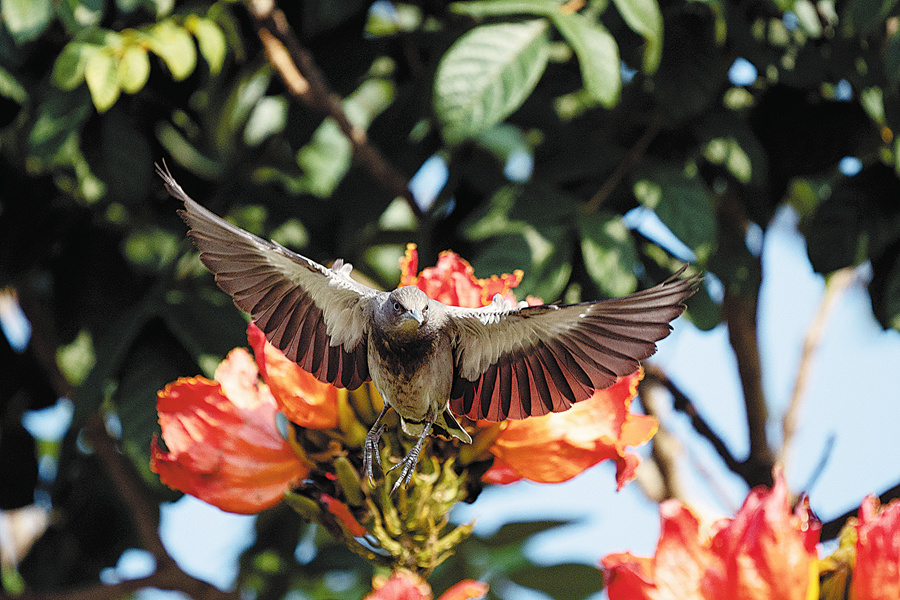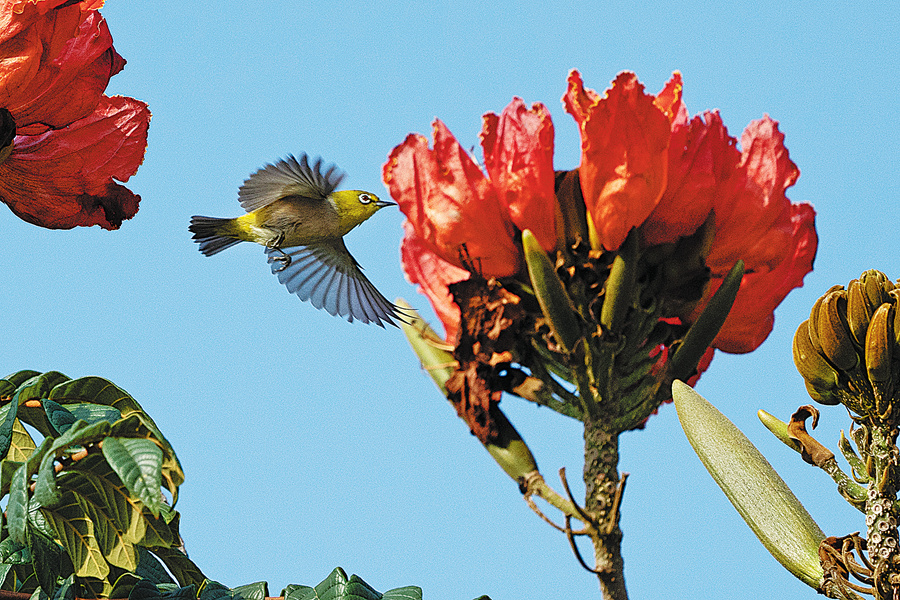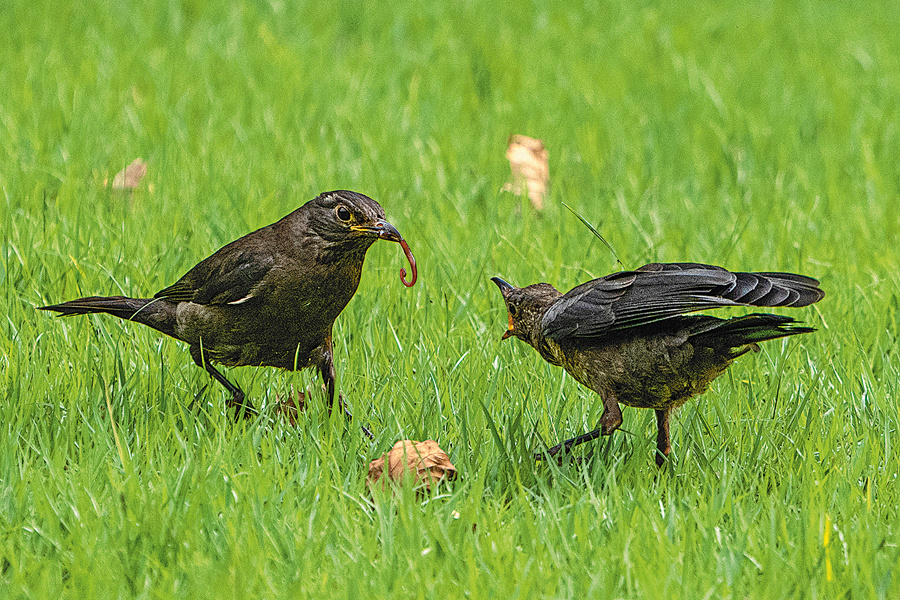
Curiosity about birds has inspired people to take up bird-watching in Shanghai. Many take it as an opportunity to spend time outdoors and get close to nature.
The most dedicated birders are usually equipped with binoculars and cameras, and travel long distances and spend hours among reeds in shoals in Nanhui or Chongming district, in order to capture a new bird with their lens.
Others, especially parents with school-aged children, sign up for weekend bird-watching sessions and join groups of 10 on trips to popular locations for bird-watching such as the Century Park in Pudong and the Gongqing Forest Park in Yangpu district. Dozens of studios and institutions provide such public educational events regularly, recruiting participants on social media.
More than 430 species of birds, about one-third of the total bird population in China, can be seen in Shanghai. The majority of birds in the city are migratory, passing by the southeastern tip of the city's Nanhui and Chongming districts.

The eastern shoals of Nanhui and Chongming, where the Yangtze River joins the East China Sea is of strategic importance for migrating birds, where they stop to feed in spring and autumn while traveling between North and East Asia and Australia or Southeast Asia, says expert Yang Gang from the Shanghai Science and Technology Museum.
Pu Chuan, a representative of Forest City Studio says public interest in nature has increased in the past few years. The Shanghai-based company, established in 2013, is dedicated to ecological conservation and public education about nature and environment. A brochure published by it on bird species in China has been popular with birders.
The company has been providing bird-watching tours since 2018. There are dozens of companies hosting such tours in Shanghai, Pu tells China Daily.
"Beginners' sessions are popular with families.
"We had taken some experienced bird lovers to faraway provinces and even abroad, before the pandemic forced such activities to stop," he says.

A group of 10 birders joined a beginners' session at Century Park in Pudong on a recent trip. Led by Zheng Yihui, an avian ecologist, the group consisting mainly of parents with schoolchildren walked around the park with binoculars and a chart of the birds frequently found in the area. Zheng stopped every now and then, pointing at birds perched on the branches of trees, or swimming in the pond. Often he took pictures of the birds with his telephoto lens, and showed the details in the images on the viewing screen on his camera.
Among the group was Wang Libo, a scientist, who brought his mother, wife and their four-month-old baby daughter on the tour.
"I found I had little knowledge about nature," Wang says. "We tend to emphasize the pragmatic aspect of science, and believe all the valuable discoveries were achieved in the laboratory, and now I realize natural science is just as important.
"We used to talk a lot about loving nature and life, but you need to know it before getting your hands into protecting it.














